Speakers
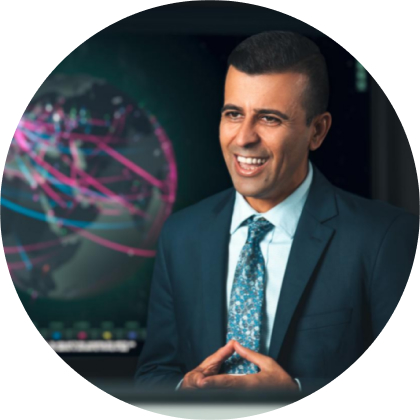
Marwan Omar, Ph.D.
Dr. Omar's Academic career has consistently focused on applied, industry-relevant cyber security, Data Analytics, machine learning, application of AI to cyber security and digital forensics research and education that delivers real-world results. He brings a unique combination of industry experience as well as teaching experience gained from teaching across different cultures and parts of the world. He has an established self-supporting program in machine learning application to cyber security. He has established a respectable research record in AI and cyber security exemplified in the dozens of published papers and book chapters that have gained recognition among researchers and practitioners (more than 272 Google scholar citations thus far). He is actively involved in graduate as well as undergraduate machine learning education including curriculum development and assessment.
Dr. Omar has recently published two books with Springer on Machine Learning and Cyber Security and has also published research with IEEE conference on Sematic Computing. Additionally, Dr. Omar holds numerous industry certifications including Comptia Sec+, ISACA CDPSE, EC-Council Certified Ethical Hacker, and SANS Advanced Smartphone Forensics Analyst.
Title of Speech: Convolutional Neural Networks
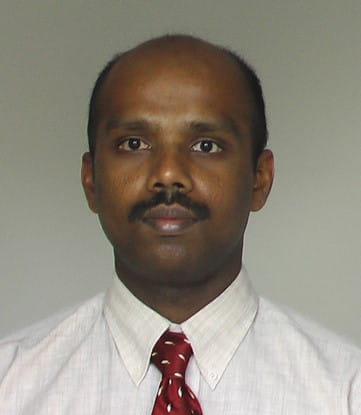
Anil Fernando, Ph.D.
Prof. Anil Fernando received the B.Sc. (Hons.) degree (First Class) in electronics and telecommunication engineering from the University of Moratuwa, Sri Lanka, in 1995, and the M.Sc. in Communications (Distinction) from the Asian Institute of Technology, Bangkok, Thailand in 1997 and Ph.D. in Computer Science (Video Coding and Communications) from the University of Bristol, UK in 2001. He is a professor in Video Coding and Communications at the Department of Computer and Information Sciences, University of Strathclyde, UK. He leads the video coding and communication research team at Strathclyde. He has worked on major national and international multidisciplinary research projects and led most of them. He has published over 425 papers in international journals and conference proceedings and published a book on 3D video broadcasting. He has been working with all major EU broadcasters, BBC, and major European media companies/SMEs in the last decade in providing innovative media technologies for British and EU citizens. His main research interests are in Video coding and Communications, Machine Learning (ML) and Artificial Intelligence (AI), Semantic Communications, Signal Processing, Networking and Communications, Interactive Systems, Resource Optimizations in 6G, Distributed Technologies, Media Broadcasting and Quality of Experience (QoE).
Title of Speech: Multi-Qubit Quantum Communication System for Image Transmission over Error Prone Channels
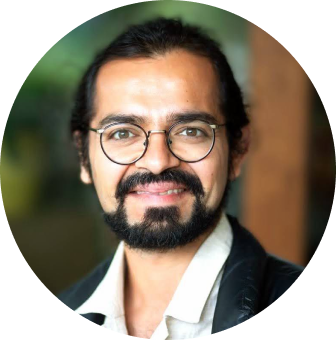
Bismark Singh, Ph.D.
Bismark Singh is an associate professor in operational research at the University of Southampton, UK. He has a habilitation in mathematics from the Friedrich-Alexander-Universität Erlangen-Nürnberg, Germany, a PhD and Master's degrees in operations research from The University of Texas at Austin, US, and a BTech in chemical engineering from the Indian Institute of Technology (IIT) Delhi, India.
Title of Speech: Sharp Minima and Fair Allocations of Scarce Resources
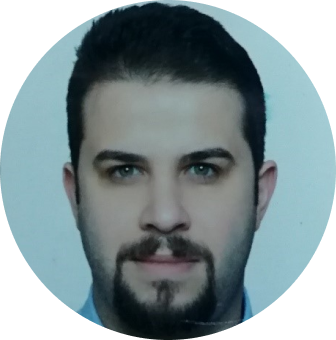
Erkan Ödemiş, Ph.D.
Erkan Ödemiş is a Research Assistant in the Department of Biomedical Engineering at Çukurova University, where he has been serving since 2012. He holds a Bachelor's degree in Electrical and Electronics Engineering and subsequently obtained his Master's degree in the same field from Çukurova University.
In his master’s thesis, he focused on the control of robotic orthoses and the implementation of different therapy modes. Subsequently, he validated the effectiveness of the proposed method by employing musculoskeletal models. He also received his Ph.D. in Electrical and Electronics Engineering from Çukurova University. In his doctoral research, he proposed a method for evaluating patient participation and performance during rehabilitation exercises based on physiological responses and error signals. This method was further validated through a clinical study.
His main research interests lie in the fields of rehabilitation robotics, assistive technologies, and biomedical signal processing. He has published several articles in international peer-reviewed journals and actively serves as a reviewer for various scientific publications. Currently, he teaches courses on microcontrollers and design of microcontroller-based systems in his department.
Title of Speech: Comprehensive Analysis of Control and Design Strategies of Upper Limb Robotic Rehabilitation Devices
Previous Speakers

Marwan Omar, Ph.D.
Dr. Omar's Academic career has consistently focused on applied, industry-relevant cyber security, Data Analytics, machine learning, application of AI to cyber security and digital forensics research and education that delivers real-world results. He brings a unique combination of industry experience as well as teaching experience gained from teaching across different cultures and parts of the world. He has an established self-supporting program in machine learning application to cyber security. He has established a respectable research record in AI and cyber security exemplified in the dozens of published papers and book chapters that have gained recognition among researchers and practitioners (more than 272 Google scholar citations thus far). He is actively involved in graduate as well as undergraduate machine learning education including curriculum development and assessment.
Dr. Omar has recently published two books with Springer on Machine Learning and Cyber Security and has also published research with IEEE conference on Sematic Computing. Additionally, Dr. Omar holds numerous industry certifications including Comptia Sec+, ISACA CDPSE, EC-Council Certified Ethical Hacker, and SANS Advanced Smartphone Forensics Analyst.
Title of Speech: Cloud Computing Security

Sharidya Rahman, Ph.D.
Sharidya Rahman is a Research Fellow in the group of Prof Jacek Jasieniak at Monash University, Australia. He got his PhD from Australian National University in 2023. He has strong background on Optical Characterization and Spectroscopy of Nanomaterials focusing on a broad spectrum of Two-dimensional Layered materials and their heterostructures for Optoelectronic device applications. His current interest lies in investigating, characterizing and understanding light-matter interaction in novel perovskite heterostructure materials, Thin Films, Colloidal Quantum Dots, 2D materials and Heterostructures for their applications in multifarious nano-devices.
Title of Speech: Phonon Dynamics and Interlayer Excitons in Twisted Two-Dimensional Moiré Heterostructures
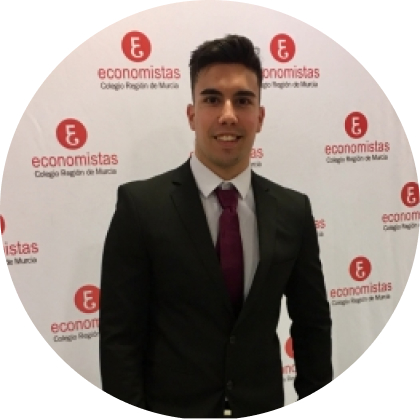
Javier Cifuentes-Faura, Ph.D.
Javier Cifuentes-Faura works in the Department of Financial Economics and Accounting at the University of Murcia (Spain). His lines of research include those related to public administration and economics, transparency, government, sustainability and green economics. He has published in more than 100 JCR impact journals, such as Public Performance & Management Review, Renewable Energy, Resources Policy, Local Government Studies, Economic Analysis and Policy or Journal of Policy Modeling. He is associate editor of several SSCI journals. He has participated in several international conferences, being invited to some of them as keynote speaker. He has been included in the prestigious Stanford University rankings as one of the 2% most influential researchers in the world in 2022.
Title of Speech: Big Data, Sustainable Development Goals and Mathematical Techniques